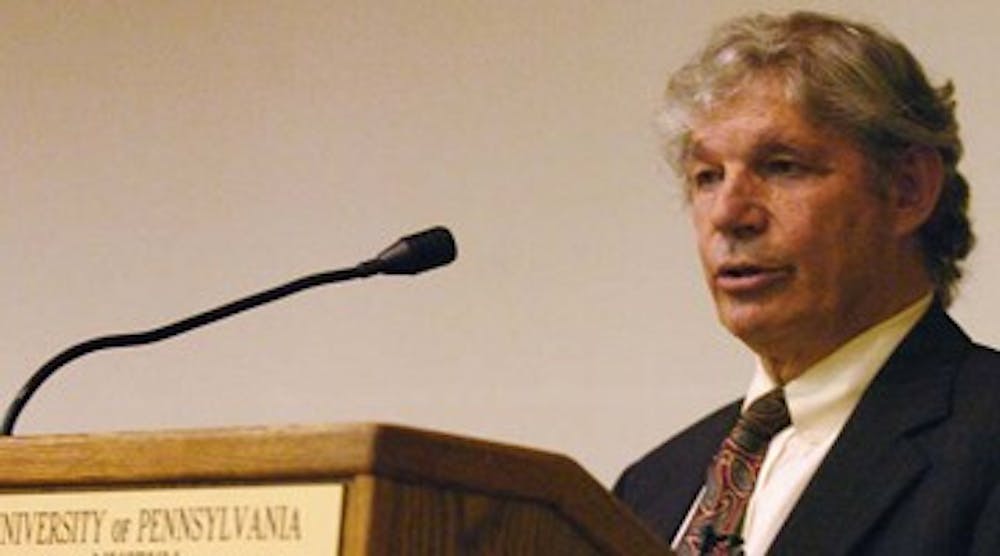
Audience members left yesterday's lecture by Stuart Kauffman with more questions than answers.
The former Penn professor elaborated upon a variety of topics, from reductionism to Darwin to the battle between faith and reason, before a nearly packed auditorium at the University Museum of Archaeology and Anthropology yesterday afternoon.
Kauffman, the director of the Institute for Biocomplexity and Informatics at the University of Calgary, has worked primarily as a theoretical biologist studying the origin of life and molecular organization. A recipient of the MacArthur Fellowship from 1987-92, he was a professor or biochemistry and biophysics at Penn.
Kauffman said the popular reductionist theory - which asserts that the nature of all complex things can be reduced to simpler parts - is inadequate.
"Doings, actions, meanings and values are in the universe," Kauffman said, and reductionism alone cannot account for these ideas.
Despite his background in science, Kauffman said there are events in the universe which cannot be explained by any theory.
He used the example of the Darwinian adaptation of the heart pumping blood to illustrate this.
"What is the function of the heart? To pump blood," he said. However, the heart makes sounds that are irrelevant to its function. It must follow, he continued, that the heart is a structure unique to the universe that does not have to obey the laws of physics as defined by reductionism.
"The heart is real," Kauffman concluded. "And that, the physicists can't give us."
Kauffman, who said he considers himself a "secular humanist," suggested that what is truly sacred is the spectacular nature of the universe.
"Take the word 'God' and use it to mean the creativity of the universe," he said.
The audience, which included a mix of students, faculty and museum patrons, found much food for thought in Kauffman's comments.
"It was interesting to hear him talk about many different subjects," said Mathematics grad student Aaron Smith. "But his way of putting things was ambiguous."
"It made me think of something different, like another possibility," said College freshman Robert DeSocio. "It didn't necessarily change my views."
The discussion was the second of a series of public lectures sponsored by the Penn Humanities Forum. This year's Forum topic is Origins.
The Daily Pennsylvanian is an independent, student-run newspaper. Please consider making a donation to support the coverage that shapes the University. Your generosity ensures a future of strong journalism at Penn.
DonatePlease note All comments are eligible for publication in The Daily Pennsylvanian.





